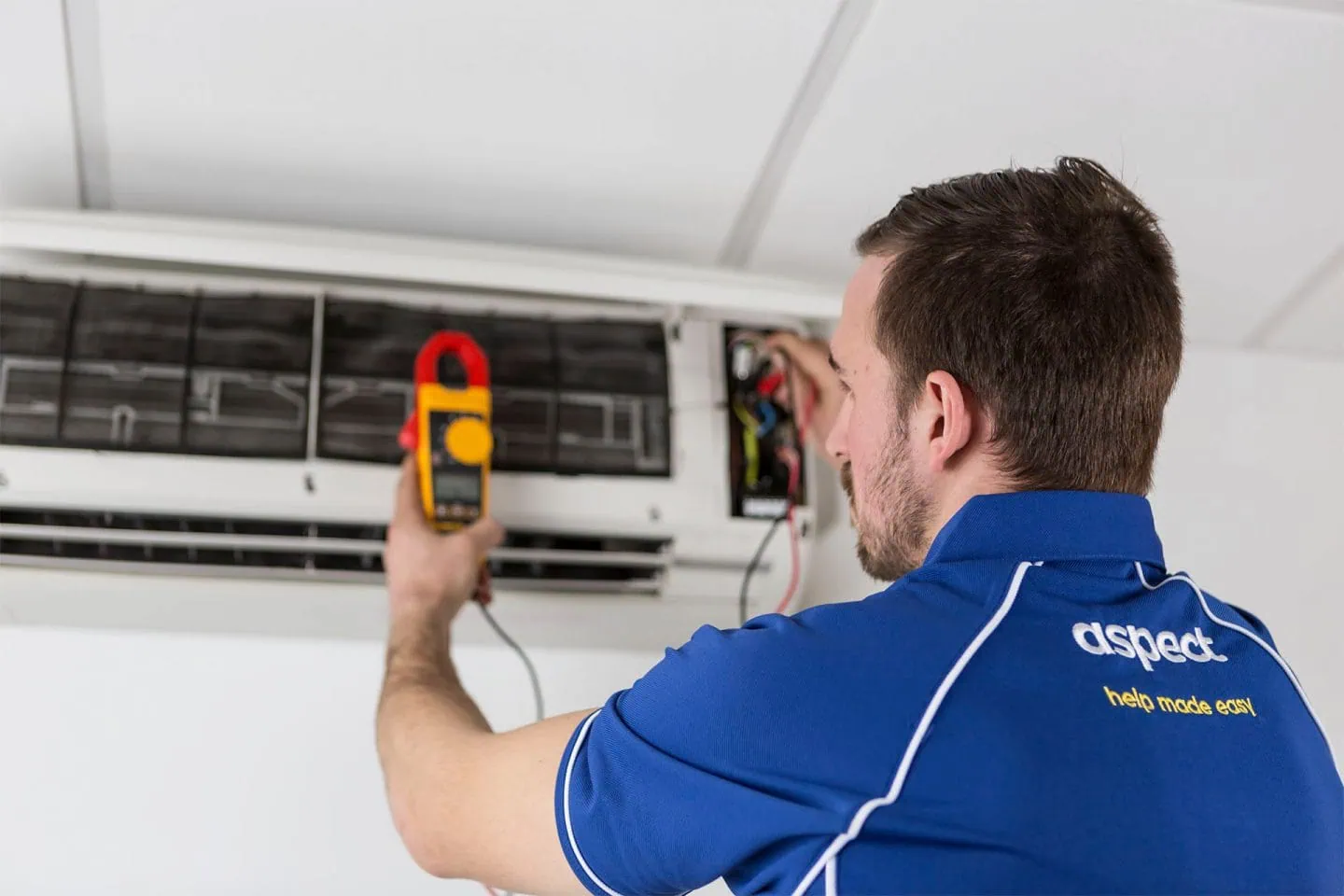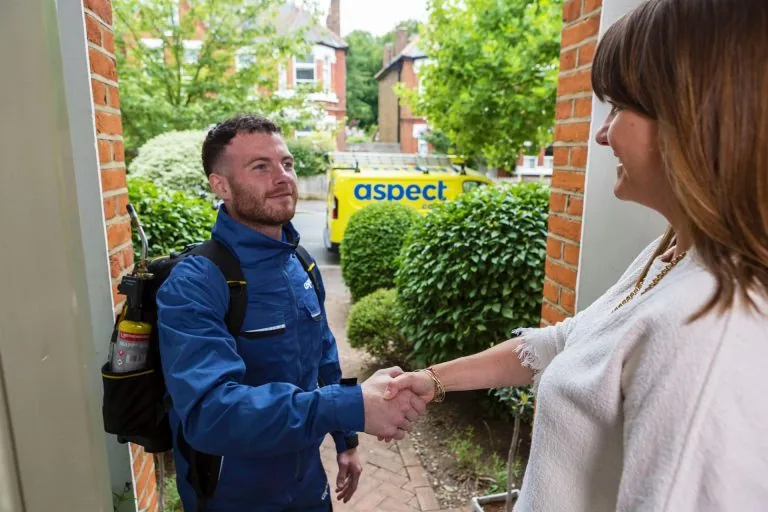How to improve air conditioning efficiency to save energy
With global warming increasing temperatures in Britain to record levels in 2022, Brits are bracing themselves for another hot summer. Naturally, the spike in temperature is increasing demand for domestic air conditioning across the country. In 2021, the Department for Business Energy and Industrial Strategy estimated that households will require up to 85% of the cooling energy consumption by the end of the century.
The increased uptake of domestic air-con units has raised questions about its environmental impact. National Grid fired up a coal plant to meet the power requirements for air conditioning this June. But, cooling in hot conditions is just as important as heating in cold conditions. People need to be at a comfortable temperature to work, rest and sleep.
So, the answer isn’t to switch the air conditioning off (or the heating in the winter, for that matter). It’s to try and reduce the amount of energy used by our temperature-controlled systems. A permanent switch from burning fossil fuels to generate electricity is on the horizon for Britain, but households can help the planet now. In the summer, this starts with air conditioning efficiency.

How can I save energy on my air conditioning unit?
Ultimately, saving energy is about optimising your air-con unit’s efficiency. An efficient unit should operate by the book and not work harder than it needs to. In turn, this uses less energy. To prevent overwork and improve your unit’s overall operation, there are several steps you can take.
1. Make annual servicing appointments
To start, it’s important to maintain your air conditioning unit with regular servicing. Not only will this keep it running efficiently, but it will provide forewarning about any potential problems before they become serious and expensive. We recommend having your home’s air conditioning unit serviced at least once a year. This can decrease your chances of being caught out on a hot day with a broken air conditioning unit.
2. Clean your air conditioning unit
Regularly cleaning the air filters, ideally every month, is encouraged to prevent the build-up of dust, dirt and pet hair inside your air conditioning unit. A dirty air filter can force the unit to work harder than necessary. This can quickly decrease the air conditioning efficiency.
Always consult the unit’s user manual before attempting to clean the air filters, and turn the air conditioning unit off at the mains. You can often unclip the cover of the unit and remove the air filters (sheets of fibrous or porous material) by hand. It’s best to vacuum the build-up of dust, pet hair or debris from the air filter using a bristle attachment. If the build-up is particularly bad, some air filters can be washed in water and mild detergent. Be aware, not all filters can be washed as some require disposable air filter replacements. If possible, wipe the unit down with a damp cloth and wait for it to dry before reassembling it and turning it back on.
Tip: Other than the air filters, don’t be tempted to clean internal parts of your air conditioning unit as it could void your warranty. If in doubt about where your air filters are located, it’s always best to consult the manufacturer or a certified air conditioning engineer.
3. Reduce exchanges between the air conditioning and outdoor air
Turning the thermostat down isn’t always the most efficient way to lower the temperature in your room. Before you turn the dial down another couple of degrees, check that the windows and doors in your room are shut. Consider closing trickle vents in windows too.
Every time you open a window or door, you let new air into the room that the air conditioning unit is forced to cool down. If you leave a window or door open for an extended period, the unit operates on overdrive to continuously cool the outdoor air to the temperature set on your thermostat. This puts additional strain on your air conditioning unit as it’s constantly in operation – especially if you are turning the dial down further to compensate for the warm air coming in.
By keeping the windows and doors shut, where possible, the cool air will remain inside the room to keep the temperature cooler, and won’t cause your air conditioning unit to constantly cycle. Plus, keeping the air inside can reduce the price of your energy bills.
4. Reduce heating from the sun
If you have rooms that are heated by direct sunlight, you can improve the heat resistance by applying a heat-reflective film to your windows. The film has a mirrored or semi-mirrored exterior that reflects solar heat. It can help to lower the temperature of a room by up to 7°C.
However, you should also consider the visual appeal of heat-reflective film from outside your home and whether it’s the right solution for your circumstances, as it can reduce the amount of light coming into your room. If the sunlight is prominent at certain times of day, closing curtains or blinds periodically might be an easier option.
5. Keep vents clear
Check that furniture or other household items aren’t partially covering an air conditioning vent, as obstructing the unit’s airflow will make it work harder.
If you have a fixed air conditioning unit, the outdoor condenser unit needs to be unobstructed, too. Check that it has no plants or overgrowth around it, as greenery can grow into the unit and prevent sufficient airflow.
6. Check if your unit is right for your environment
Hopefully, the engineer that installed the air conditioning unit in your home previously checked that it was right for your needs. However, we have visited properties where this isn’t the case. The biggest indicators of a wrongly installed air conditioning unit are its cooling ability when doors and windows are closed, and higher than average energy bills.
You could be forcing your air conditioning unit to work beyond its capability to meet your temperature requirements. If you’re concerned that your unit might be the wrong size for your environment, it’s best to have it checked by a certified engineer. Replacing it with a unit that’s the right size is likely to save you some money in the long run.
7. Resolve potential problems immediately
If your air conditioning unit is a higher cost to run than usual, making noises, short-cycling or icing up, it is best to get it inspected by a certified engineer right away. Some air conditioning units will contain a fluorinated gas (F gas), which is regulated in the UK. The UK government advises that it’s the owner’s responsibility to detect and repair F-gas leaks immediately, and that you are breaking the law if you don’t have the right leak checks in place, or don’t fix them. To avoid a civil penalty, book servicing appointments with an F-gas registered engineer and call them as soon as you notice any problems with your unit.
Tip: Use an F-gas registered engineer for all work on your air conditioning unit, just in case it contains F gas.
Arrange a visit from an F-gas registered expert
It’s never too late to improve your energy consumption and bills through the efficient use of air conditioning, and given the strain on Britain’s clean energy sources during periods of high demand, there’s no time like the present.
Whether you need an annual service to maintain air conditioning efficiency, a visit to discuss a problem with your unit, or you’re ready to install a more energy-efficient unit, our dedicated team of F-gas licenced engineers are ready to help, 24/7. Hourly rates start at £95.00 + VAT and come with a 12-month workmanship guarantee, as standard.
Book a certified air-con engineer

Our air-con engineers are on call for domestic and commercial work.
- Half-hour maintenance rates from £49.50 + VAT
- F-gas-registered experts
- Quick response time
- Knowledge & advice you can trust
Was this article helpful?
Think we could improve this article? Please let us know